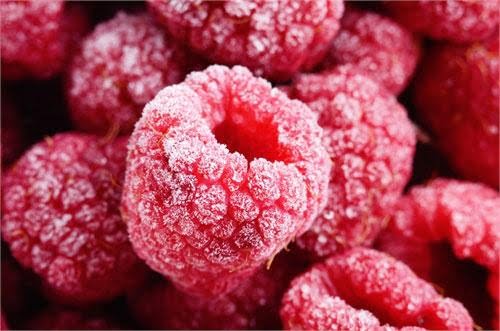Polish Minister of Agriculture Czeslaw Siekierski made a number of high-profile statements this week trying to justify the actions of its fellow countrymen blocking boarders with Ukraine for Ukrainian trucks, buses and trains. He paid special attention to imports of frozen raspberries to Poland from Ukraine making some interesting comments on the subject.
His statements could not be ignored by EastFruit experts because they were simply untrue. Mr Siekierski either did not have sufficient information about the raspberry market, or lied on purpose as Poland’s official import statistics tell us a completely different story. Here is our analyses of Minister’s words.
“Last year we received so much frozen raspberry [from Ukraine] that next year we won’t have to produce anything. This is the problem. Of course, when it comes to raspberries, we will not let them in,” said Minister Siekierski.
Just in this short statement the Minister managed to tell a lie, a big lie and a show a complete misunderstanding of EU legislation.
Big lie of the Polish minister #1 –last year so many raspberries came from Ukraine that Poland may not grow them at all.
Poland grows annually about 100-105 thousand tons of raspberries, according to official statistics of the country. At the same time, exports of frozen raspberries from Poland range from 105 to 127 thousand tons!! It is already more than they produce!
Moreover, Poland also exports about 10 thousand tons of fresh raspberries. In total, exports of raspberries from the country in fresh and frozen forms range from 115 thousand tons to 137 thousand tons, which already exceeds production by 10-30 thousand tons!
However, Poland is a large country with about 38 million inhabitants who consume at least 35 thousand tons of raspberries per year in fresh and processed form. Poland also produces and exports fruit and berry juices, purees, jams, and concentrates, which also use raspberries. Let’s not forget also about losses.
Therefore, dear Mr. Minister Sekierski either does not understand what the balance of supply and demand is, or is deliberately telling a lie, because Poland, in order to maintain its position in the raspberry export market, needs to import at least 50 thousand tons of raspberries in year. And this is even if we assume that official data on production volumes are underestimated.
Thus, the 22 thousand tons of frozen raspberries imported from Ukraine would not even cover half of their deficit! Moreover, 22 thousand tons of imports will certainly be far from enough to satisfy even domestic consumption from Poland not even talking about 130 or more thousand tones needed for exports.
The lie of the Polish minister No. 2 is that Ukraine supposedly supplied more raspberries in 2023 than before. And although this was not directly stated, his phrase suggests this. However, the imports of raspberries from Ukraine in value terms in 2023 compared to 2022 fell by more than half! In physical terms, imports also decreased!
Moreover, currently storage facilities with frozen raspberries in Poland have much lower stocks than a year ago, and the demand for raspberries exceeds supply. Polish traders of frozen produce are actively seeking to import frozen raspberries, which means that there is no problem with oversupply at all! Either the Polish minister is not aware of the market situation, or he wants to dissuade local farmers from growing produce that is now in short supply.
Misunderstanding of EU legislation by the Polish minister. Upon joining the European Union, Poland agreed to delegate decisions on trade policy to the European Commission. To quote specifically for the Minister: “The European Union’s (EU) Common Commercial Policy, or EU Trade Policy, is the policy whereby EU Member States delegate authority to the European Commission to negotiate their external trade relations, with the aim of increasing trade amongst themselves and their bargaining power vis-à-vis the rest of the world.”
Therefore, statements of Mr Czeslaw Siekierski that “Poland, of course, will not allow raspberries from Ukraine” are either a manipulation, or a misunderstanding of how EU trade policy works, or a direct violation of EU legislation, or a failure to comply with one’s own obligations. Either one does not look and sound good at all, contributing to worsening reputation of Poland as one of the least reliable trading partners in the region.
EastFruit analysts point out that the European Union is a large net importer of frozen raspberries. Every year, the region imports more than 200 thousand tons of this products from outside the EU. The main suppliers of these raspberries to the EU are Serbia, Ukraine, and Morocco.
If Poland, contrary to EU decisions, unilaterally bans imports of frozen raspberries from Ukraine, it, according to EastFruit analysts, will lose tens of millions of euros in export earnings, millions of euros in tax revenue, many jobs in the industry and will not help its farmers at all, as they will be forced to reduce area under raspberries.
At the same time, Ukraine will be able to sharply accelerate the rate of increase in the area under raspberries and the volume of its production in fresh and frozen forms. According to EastFruit, in 2024, several large modern enterprises for freezing berries will be commissioned in Ukraine, allowing it to supply greater volumes of high-quality products to the most demanding customers anywhere in the world.
Marketing frozen raspberries bypassing Poland is now a priority to Ukrainian producers and traders as it will allow processors to increase purchase prices for raspberries. Until now Ukraine often sent berries to Poland for post-processing, and local freezers, sorting and packing these products, kept up to 40-50% of the added value making good money. This allowed them to finance purchases of local raspberries and maintain a powerful position on the global market.
The use of the site materials is free if there is a direct and open for search engines hyperlink to a specific publication of the East-Fruit.com website.




